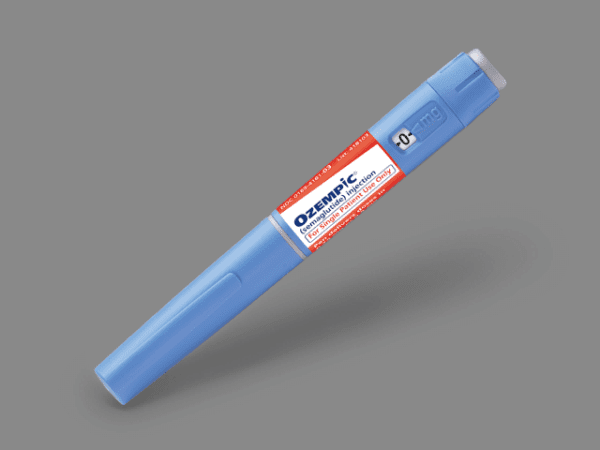Semaglutide and Alcohol/Food Interactions
There are 2 alcohol/food/lifestyle interactions with semaglutide.
Alcohol (Ethanol) Semaglutide
Moderate Drug Interaction
Talk to your doctor before using ethanol (alcohol) together with semaglutide. Alcohol may affect blood glucose levels in patients with diabetes. Both hypoglycemia (low blood sugar) and hyperglycemia (high blood sugar) may occur, depending on how much and how often you drink. You should avoid using alcohol if your diabetes is not well controlled or if you have high triglycerides, neuropathy (nerve damage), or pancreatitis. Moderate alcohol consumption generally does not affect blood glucose levels if your diabetes is under control. However, it may be best to limit alcohol intake to one drink daily for women and two drinks daily for men (1 drink = 5 oz wine, 12 oz beer, or 1.5 oz distilled spirits) in conjunction with your normal meal plan. Avoid drinking alcohol on an empty stomach or following exercise, as it may increase the risk of hypoglycemia. It is important to tell your doctor about all other medications you use, including vitamins and herbs. Do not stop using any medications without first talking to your doctor.
Semaglutide Food/Lifestyle
Moderate Food Interaction
Food may affect the absorption of semaglutide when taken orally. It is recommended that oral semaglutide be taken 30 minutes before first food, beverage, or other oral medications of the day with no more than 4 ounces of plain water. You may experience more side effects including nausea, vomiting, and diarrhea if you fast longer than 30 minutes after the semaglutide dose. Talk to a healthcare provider if you have any questions or concerns. It is important to tell your doctor about all other medications you use, including vitamins and herbs. Do not stop using any medications without first talking to your doctor.
Switch to professional interaction data
Semaglutide drug interactions
There are 275 drug interactions with semaglutide.
Semaglutide disease interactions
There are 6 disease interactions with semaglutide which include:
- suicidal behavior and ideation
- thyroid cancer
- GI adverse events
- hypoglycemia
- pancreatitis
- retinopathy
More about semaglutide
- semaglutide consumer information
- Check interactions
- Compare alternatives
- Reviews (2,790)
- Latest FDA alerts (5)
- Side effects
- Dosage information
- Patient tips
- During pregnancy
- Support group
- Drug class: GLP-1 Agonists (Incretin Mimetics)
- Breastfeeding
Related treatment guides
Drug Interaction Classification
| Highly clinically significant. Avoid combinations; the risk of the interaction outweighs the benefit. | |
| Moderately clinically significant. Usually avoid combinations; use it only under special circumstances. | |
| Minimally clinically significant. Minimize risk; assess risk and consider an alternative drug, take steps to circumvent the interaction risk and/or institute a monitoring plan. | |
| No interaction information available. |
See also:
Further information
Always consult your healthcare provider to ensure the information displayed on this page applies to your personal circumstances.


